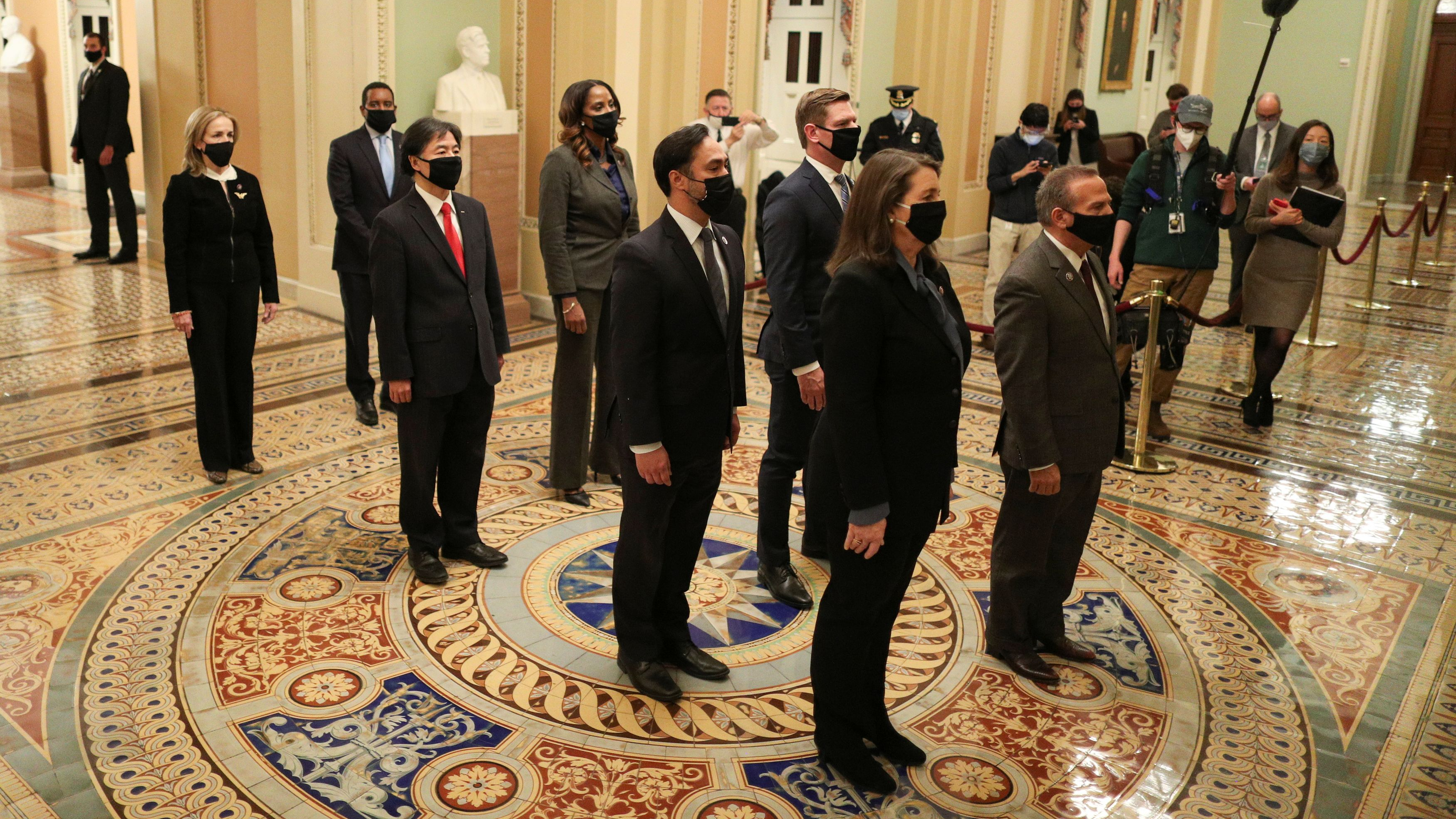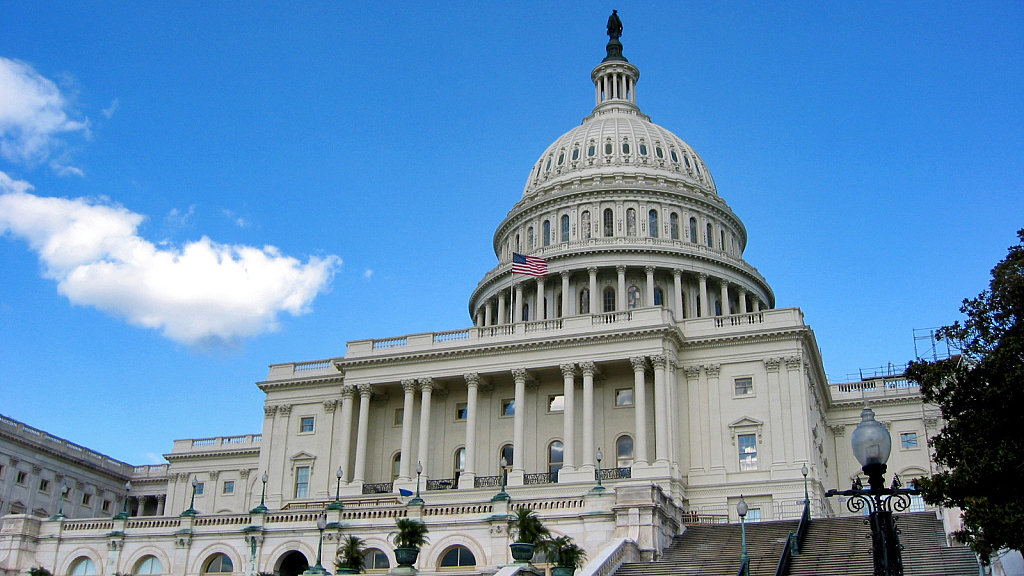
House impeachment managers stand at the U.S. Capitol to hand-carry an article of impeachment against former President Donald Trump to the Senate for trial on accusations of inciting the January 6 attack on the Capitol, in Washington, U.S., January 25, 2021. /Reuters
House impeachment managers stand at the U.S. Capitol to hand-carry an article of impeachment against former President Donald Trump to the Senate for trial on accusations of inciting the January 6 attack on the Capitol, in Washington, U.S., January 25, 2021. /Reuters
The U.S. House of Representatives on Monday delivered an article of impeachment against former President Donald Trump to the Senate, formally charging him with inciting an insurrection at the Capitol.
Leaders of the Senate, which is divided 50-50 with Democrats holding a majority because of the tie-breaking vote of Vice President Kamala Harris, have agreed not to start the impeachment trial until February 9.
The 100 senators are due to serve as jurors in proceedings that could result in Trump's disqualification from ever again serving as president.
01:34

The Republican denunciations of Trump have cooled since the January 6 riot. Instead, Republicans are presenting a tangle of legal arguments against the legitimacy of the trial and questions whether Trump's repeated demands to overturn Joe Biden's election really amounted to incitement.
Senate Majority Leader Chuck Schumer said failing to conduct the trial would amount to a "get-out-jail-free card" for other officials accused of wrongdoing on their way out the door.
What seemed for some Democrats like an open-shut case that played out for the world on live television, as Trump encouraged a rally mob to "fight like hell" for his presidency, is running into a Republican Party that feels very differently. Not only are there legal concerns, but senators are wary of crossing the former president and his legions of followers who are their voters.
Security remains tight at the Capitol. Thousands of National Guard troops will remain in D.C. through at least March, continuing the extraordinary militarization of the city in the days leading up to Biden's inauguration but in a smaller scale.
Biden himself told CNN late Monday that the impeachment trial "has to happen." While acknowledging the effect it could have on his agenda, he said there would be "a worse effect if it didn't happen."
Biden said he didn't think enough Republican senators would vote for impeachment to convict, though he also said the outcome might well have been different if Trump had six months left in his term.
On Monday, it was learned that Chief Justice John Roberts is not expected to preside at the trial, as he did during Trump's first impeachment, potentially affecting the gravitas of the proceedings. The shift is said to be in keeping with protocol because Trump is no longer in office.
Instead, Sen. Patrick Leahy, who serves in the largely ceremonial role of Senate president pro-tempore, is set to preside.
"I have presided over hundreds of hours in my time in the Senate," Leahy told local reporters, "I don't think anybody has ever suggested I was anything but impartial in those hundreds of hours."
(With input from agencies)

